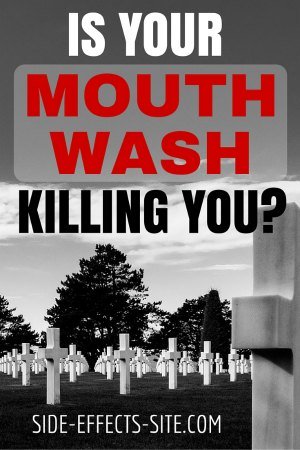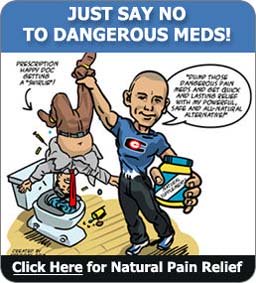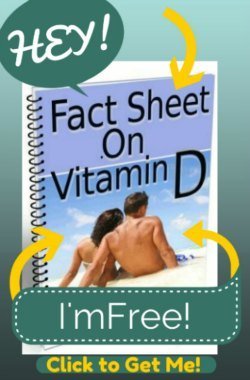Your Antibacterial Mouthwash
Might Be Slowly Killing You
Despite what you might have been told, Antibacterial Mouthwash side effects are probably doing for your health the exact opposite of what you are taking it to do. While the health media has been correctly saying that poor oral hygiene is bad and can even put you at risk for heart disease; they incorrectly have assumed that ‘good’ oral hygiene must include a ‘scorched earth’ dental hygiene program of killing 99.999% of ‘germs’ in your mouth.
But this advice is not only incorrect, it is exactly the opposite of good advice since in killing off all of the bacteria in your mouth, you are actually increasing your risk of heart disease(2) instead of decreasing it, even if you use the mouthwash for just a short amount of time.
Antibacterial Mouthwash
Increases Risk of Heart Disease
While it may seem crazy that killing ‘germs’ in your mouth will put you at risk for heart disease, but there is actually a good reason for this that we also outlined on the Chlorhexidine Mouthwash page. While most westerners think of all ‘germs’ as being bad and needing to be killed for our health, the fact is that most of the microorganisms we come into contact with either don’t harm us, or actually are beneficial.
Some of those microorganisms in the mouth are Good Bacteria that create a substance called nitric oxide every time we eat certain vegetables, mainly leafy greens. And nitric oxide, not to be confused with the ‘laughing gas’ you get in the dentist’s office that is called Nitrous Oxide, is actually an important substance that can help to protect your heart and immune system. So, every time you eat green leafy vegetables, bacteria in your mouth make nitric oxide that protects your heart… unless you use antibacterial mouthwash that kills these bacteria.
Incidentally, you need a very acid stomach in order to get the benefits of nitric oxide, therefore one of the Side Effects of Prescription Antacids is to prevent the absorption of nitric acid. So if you use an antibacterial mouthwash and take prescription antacids, you'll almost completely block any benefits you'd otherwise get from nitric oxide.
“These results suggest that oral symbiotic bacteria modulate gastrointestinal and cardiovascular function via bioactivation of salivary nitrate. Excessive use of antiseptic mouthwashes
may attenuate the bioactivity of dietary nitrate.”
Gastroprotective and blood pressure lowering effects of dietary nitrate are abolished by an antiseptic mouthwash
Several studies have shown that these antibacterial mouthwashes actually do reduce the amount of nitric oxide that is produced, to the point where blood levels are measurably reduced and blood pressure actually rises! Not only does the reduction of nitric oxide put you at risk of heart disease, but nitric oxide also helps the stomach to produce mucus, providing immune system benefits and protection from ulcers.
Antibacterial mouthwashes can reduce this protection, putting you at risk of getting infections such as H Pylori and C-difficile, as well as gut inflammation that can lead to Increased Intestinal Permeability and contribute to Gluten Sensitivity, Food Allergies, and even autoimmune disease. Who knew all of the problems that could be caused by doing something you thought was good for you!
When Antibiotics Don't Work
Microbial resistance is a serious world health crisis that could make antibiotics ineffective in the future. It’s estimated that Half of All Antibiotic Use is Unnecessary and that this is leading to strains of bacteria, such as MRSA and C-Difficile, that no longer respond to most available antibiotics. A predominance of ‘Superbugs’ could throw humanity back into a time before the creation of penicillin, when people regularly died from simple infections.
While no one is interested in this occurring, virtually everyone, with the medical community at the forefront, regularly contributes to this problem by using and overusing antibiotics, antimicrobial handwashes, hand gels, toothpaste, and antibacterial mouthwashes.
Chlorhexidine Mouthwash, considered the ‘gold standard’ in antibacterial washes, creates bacterial resistance to it quickly, and simply allows bacteria that are less resistant to take over the mouth(4) Fortunately, chlorhexidine stains the teeth and tastes so bad that it’s unlikely to be abused as a mouthwash
“More indiscriminate use of QACs ...will aid in the persistence
and spread of antimicrobial resistance and thus in limiting
our treatment options for microbial infections.”
Does the Wide Use of Quaternary Ammonium
Compounds Enhance the Selection and
Spread of Antimicrobial Resistance?
More concerning is cetylpyridinium chloride, a chemical in a class called Quaternary Ammonium Compounds, or QAC’s, that is present in a variety of antibacterial mouthwashes and other dental products such as Crest Pro Health Rinse, Scope, Cepacol, Dentyl, Act, and many others.
Teeth Staining
One of the most common side effects of antibacterial mouthwashes is tooth staining of one degree or another. Chlorhexidine Mouthwash is notorious for staining both the teeth and the tongue. Even worse, chlorhexidine PROMOTES tartar formation, and this tartar is easily stained and requires removal by the dentist or hygienist at a dental visit.
Antibacterial mouthwashes containing cetylpyridinium chloride are also prone to staining the teeth(3), although to a lesser degree than chlorhexidine. These compounds mix with the polyphenols in healthy foods like blueberries and red wine to create these stains.
Alcohol Based Mouthwashes
Even alcohol based mouthwash, the kind that you find in most grocery stores, is not really suitable for use as a mouthwash and can have harmful effects. The alcohol can dry out your mouth and lead to bad breath; and there is a raging controversy over whether the alcohol they contain leads to a higher incidence of oral cancer. Why would you want to use something that whether or not it causes cancer is even debated?
As is pointed out on the Matcha Tea for Dental Health page, green tea is not only beneficial for the teeth, but contains antioxidants that are known to lower risks of cancer. And since it’s not an antibacterial, it won’t kill the nitrous oxide producing bacteria or lead to bacterial resistance, and it’s just as effective as Chlorhexidine Mouthwash, long considered the ‘Gold Standard’ of anti-plaque effectiveness.
At home, we use a mouthwash made of green tea and xylitol. Xylitol is also good for dental health, and the Xylitol Side Effects show that it’s actually beneficial for the mouth and body, and that the Risks of Xylitol are minimal. The mixture tastes great, is absolutely safe for children, is non-toxic, can be swallowed, has the health benefits of antioxidants, is incredibly inexpensive, and there are no Green Tea Side Effects to worry about.
Even Caffeine Side Effects, such as stimulation, are lessened or eliminated with green tea, so a swallow of this at bedtime will not cause insomnia for most people. And children often have a Paradoxical Reaction to caffeine anyway, aiding them in sleep rather than making them stimulated. So, this natural mouthwash is not only safe to give children, but much better for their dental health than giving them medicinal substances that can be harmful to both their oral health and their lifelong overall health.
Back to Side Effects Site Home
Back to Top of Antibacterial Mouthwash Page
Sources:
- The use of quaternary ammonium disinfectants selects for persisters at high frequency
- Antibacterial Mouthwash Blunts Oral Nitrate Reduction and Increases Blood Pressure in Treated Hypertensive Men and Women
- The Effect of a Quaternary Ammonium-Containing Mouthwash on Formed Plaque
- Effects of a Chlorhexidine Gluconate-Containing Mouthwash on the Vitality and Antimicrobial Susceptibility of In Vitro Oral Bacterial Ecosystems






